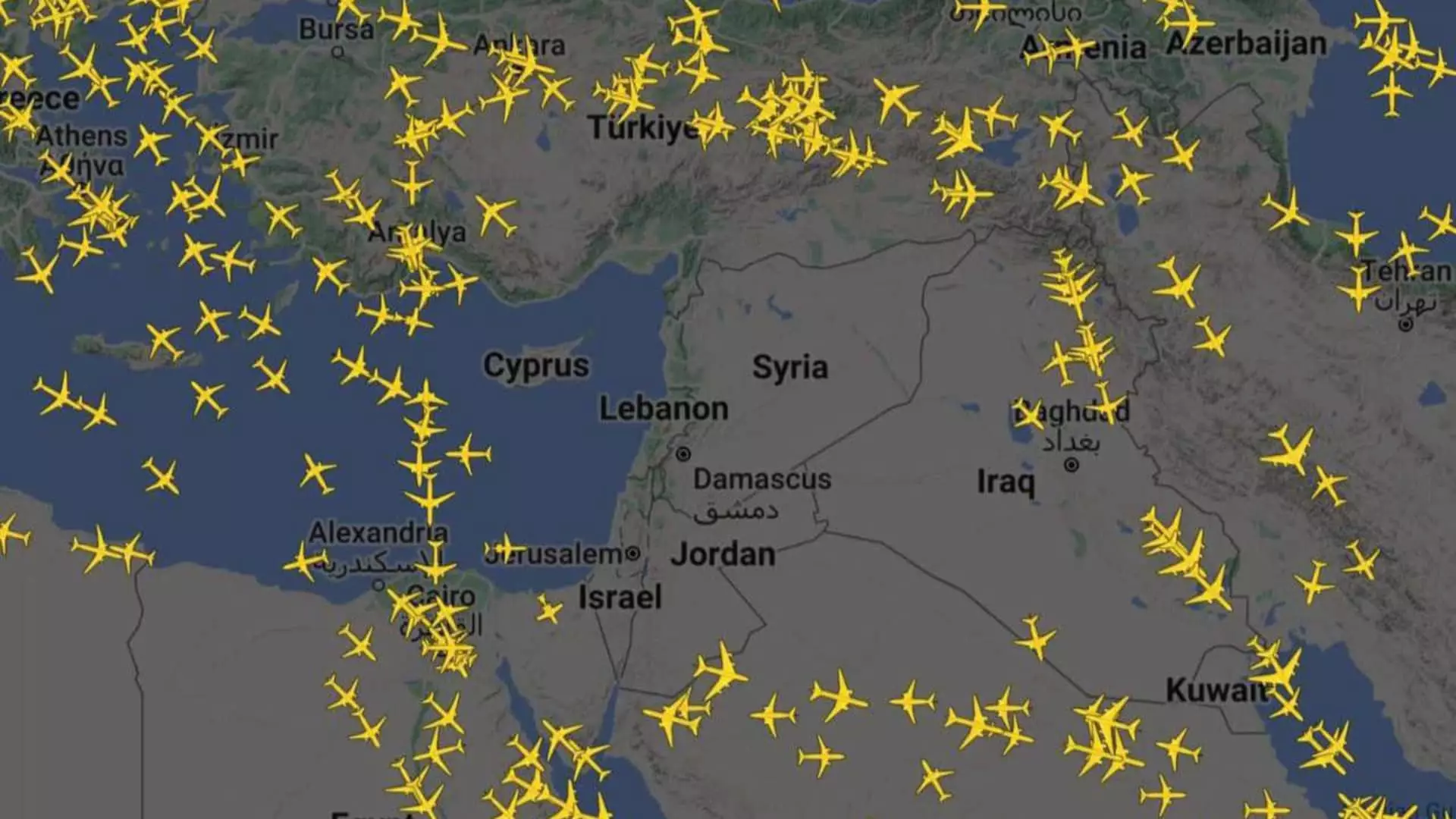The recent airspace closures in the Middle East have had a significant impact on air travel, with various airlines being forced to ground and divert flights. United Airlines, which had only recently resumed service to Tel Aviv, was one of the airlines affected by the closures. The airline had to call off its Newark to Tel Aviv flight on Saturday after Israel closed its airspace. This decision was made in light of Iran launching drones toward Israel, prompting other countries such as Jordan and Iraq to close their airspace as well.
Delta Airlines, which had plans to restart flights to Tel Aviv in June, also faced disruptions due to the airspace closures. American Airlines, on the other hand, has not yet resumed its services to Israel, further highlighting the challenges faced by airlines operating in the region. The closures have not only affected flights to Israel but also to other destinations in the Middle East, with airlines like Emirates Airline and Air France having to cancel their scheduled flights to Amman.
Passengers traveling to and from the Middle East have been left stranded and confused by the sudden cancellations and diversions. Israel’s El Al, for example, had to cancel more than 20 flights scheduled for Sunday, leading to chaos and uncertainty among passengers. Some flights that were en route to Tel Aviv had to divert to other airports, such as Bangkok, leaving passengers unsure of their next steps. The lack of clarity on when flights would resume has only added to the frustration experienced by travelers.
The airspace closures have not only affected passengers but have also posed challenges for airlines in terms of operational planning. With multiple flights being canceled and diverted, airlines have had to reorganize their schedules and routes, leading to additional costs and logistical complications. The uncertainty surrounding the situation in the Middle East has made it difficult for airlines to make informed decisions about when to resume their services, further exacerbating the disruptions caused by the closures.
The recent airspace closures in the Middle East have had a significant impact on air travel, with airlines like United, Delta, and American Airlines facing challenges in operating their flights to the region. Passengers have been left stranded and uncertain, while airlines have had to deal with operational disruptions and financial losses. The situation remains fluid, and it is crucial for airlines and passengers to stay informed and prepared for further changes in the coming days.


Leave a Reply